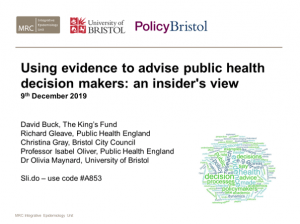![[IMAGE: Caption text|/resources/images/blank.png] [IMAGE: Caption text|/resources/images/blank.png]](https://www.upen.ac.uk/nl_uploads/89.png)
Universities need to do more to support impactful researchers
For anyone who has worked in or on policy engagement, the image of the furiously busy policymaker will be all too familiar.
In training, case studies and even in the academic literature, this image persists: a policymaker, inundated with different priorities, brain saturated with information, inbox filled to the brim, running frantically from one meeting to the next, trying to get as much as possible done in difficult circumstances, and with limited resources.
Although I suspect it is less common, there is also an image of the academic: busy with research and teaching, they meet multitudes of students and they mark piles of essays. The academic has also has limited resources, (unless they have a handy grant), but great depth of expertise.
Much of the thinking about engaging with policymakers focuses – rightly, I think – on how to make life easy for our “furiously busy policymaker”. We write differently, more concisely, more simply, and more in stories than in facts. In short, we tailor what we do to the concerns and priorities of policymakers. There is nothing wrong with that – indeed, it seems a sensible thing.








 This week’s guest blog is by
This week’s guest blog is by 
